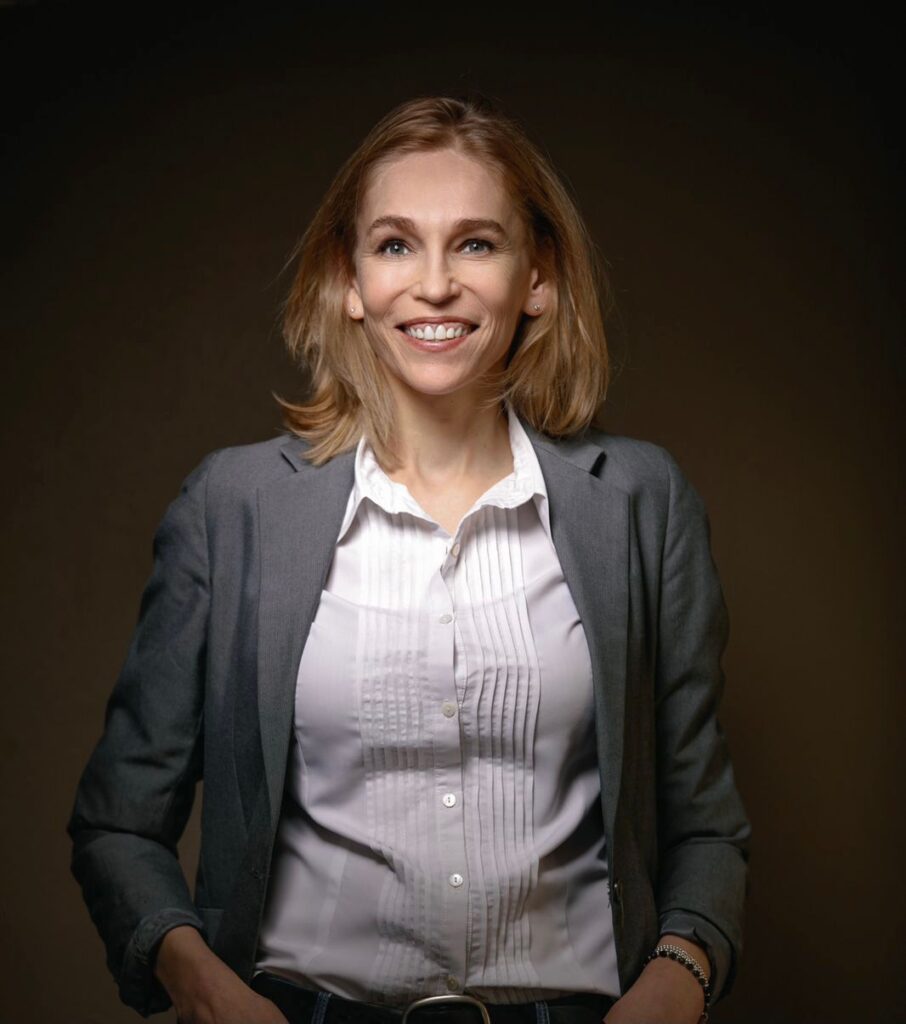
The Digital Marketing World Forum Europe (DMWF) took place at the RAI in Amsterdam on November 20 and 21 this year. Managing Director of HaveYouHeard’s Durban office and a key player in its international expansion strategy, Kirsty Bissett, was one of two African representatives at the conference. She shares her five key takeaways from the event.
***
DMWF 2022 brought together some of the best and brightest minds in digital marketing with a range of speakers and exhibitors from various countries, organisations and specialities.
Three themed stages provided multiple talks simultaneously, so visitors could map out their day according to their preference or speciality. Cleverly, every guest was provided with headphones that cancelled out any distracting noise and tuned to the speakers’ microphones so that they could be clearly heard.
Within a few hours, a handful of key themes rose to the top (like the proverbial cream), and remained there as the forum continued. Here are the five that I found the most important and relevant for marketers, creators, influencers and entrepreneurs to keep in mind.
Uncertainty
DMWF took place amidst Elon Musk’s purchase of Twitter, when advertisers were pulling spend and the platform’s future was questionable. In addition, WARC’s Insight Director, Aditya Kishore revealed during his synopsis of WARC’s Marketer’s Toolkit that 30% of marketers plan to cut spend on Facebook in 2023, which could see its income cut to $46bn.
While platform uncertainty isn’t a new concern, these happenings are a reminder that trust has moved away from institutions (including media and brands) to known people and peers. Consumers are no longer passive so, to create long-term relationships, brands need to engage through the line, reminding us of the importance of omnichannel.
The subject of trust was brought home by Senior Client Solutions Manager at LinkedIn, Amrita Lal, when she said: “Customers don’t trust brands, but people still trust people.”
Authenticity
As a result, brands have to be visible at the point of contact and meet people where they are in order to form a meaningful and long-lasting connection. And one industry that has felt this the most is the publishing industry.
Roberta Cianetti, who heads up social media at Condé Nast Italy, walked us through the publishing magnate’s pivot from print to digital and events. Magazines, with their perfectly-curated pages aren’t necessarily lighting rods for authenticity awards, so I really enjoyed her candid conversation around how their brands moved out of publishing toward engaging, raw and less polished video content.
The key takeaway here is to focus on communicating your purpose, not just your product or service.
The best way for digital marketers to put this into practise? Influencers. Nano and micro influencers were said to deliver better ROI with highly engaged audiences. Brands should be harnessing them for honest feedback and more impactful engagement.
TikTok has especially democratised influencer marketing with pretty much anyone being able to become a content creator.
Consistency
We live in a very on-demand environment with entertainment on-demand for us to binge on, food at our door within minutes. For some marketers, this way of thinking has filtered into the way we approach our communications strategies. We leapfrog over foundational principles and expect results far too quickly.
This is why I enjoyed Chris Goddard’s talk so much. Goddard is the Johnnie Walker Global Marketing Director at Diageo and he emphasised the power of consistency by taking us through one of the most iconic lines in history – Keep Walking.
Those two words have underpinned the essence of the brand for two decades and, no matter where in the world they are running a campaign, this phrase stays true to who the brand is and where it is going.
The theme of consistency also shone bright when Charles Radiguet, TikTok Sales Manager for Southern Europe, took the stage on day two. He emphasised the importance of not giving up, even if your content isn’t seeing results.
Chantel Botha, Founder and CEO at BrandLove (and fellow South African) and Janina Jahns, Senior Culture and Entertainment Manager for Northern Europe at Diageo, asked a question that we should all consider: “What do we want customers to feel about themselves around your brand?” This question’s answer shouldn’t change drastically.
Partnerships
With much of the forum focusing on utilising people of influence to enhance your marketing strategies, the importance of partnerships came through thick and fast.
Content creators can help to translate your vision in a humanised way and enhance consumer engagement.
Also, with social commerce on the rise, brands need to test and learn now to be ready for the future. Influencers are great for involving consumers in web3 (blockchain, NFTs, the metaverse) through data, storytelling and co-creation.
Diversification
The theme of diversification stemmed from the initial theme of uncertainty mentioned earlier, and the old adage of not putting all your eggs in one basket applies.
Where will your brand go if a platform, for example, disappears? What will your brand do if a segment of your market falls out of love with you? How will your brand react to universal analytics being retired in 2023?
Chris Goddard spoke about Johnnie Walker’s recent diversification strategies, which include content automation and their NFT collaborations. My takeaway? It’s not only important to meet customers where they are, but where they are going to be.
- MRF Unveils Latest MAPS® Data - 20th February 2025
- The BRC announces changes to the board and updates for 2025 - 17th December 2024
- Top 50 DSTV TV programmes – October 2024 - 12th November 2024
![Gearing up for the MMA’s SA IMPACT Conference: Thriving in the Modern Marketing Landscape yenıpost-02[64]](https://amplifier.org.za/wp-content/uploads/2023/09/yenipost-0264-150x150.jpg)




